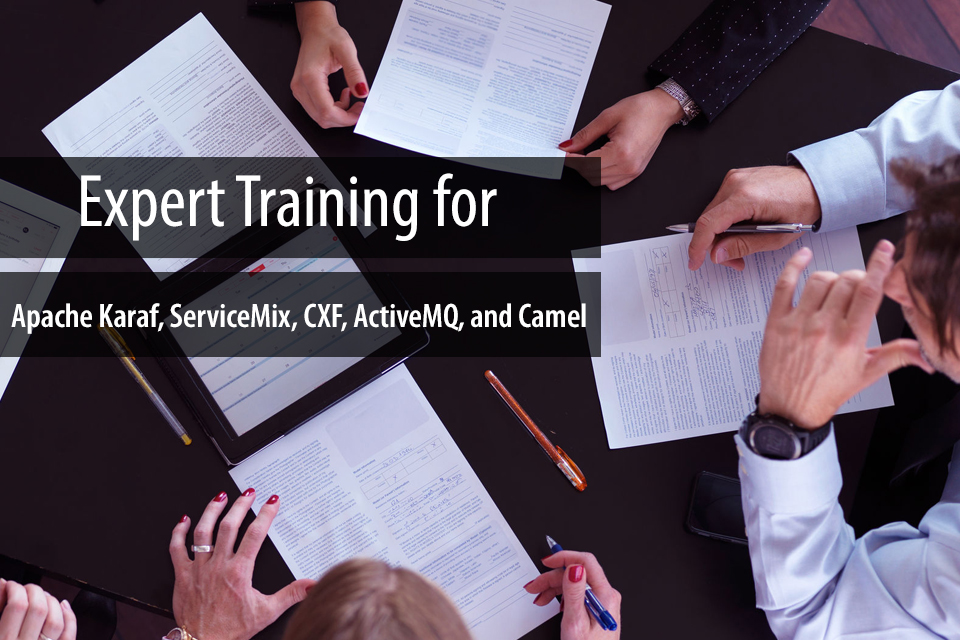ActiveMQ Essentials
Description:This training focuses on the essential features of ActiveMQ using hands-on coding exercise to drive home the need to know concepts of this JMS framework. The course examines topics such as embedded brokers, persistence, prefetch, transcactions , connection management, message grouping as well as introducing the students to architectures that provide high availability and scaling. The labs offer students a hands-on experience coding against ActiveMQ using Spring or Java while implementing some of the more commonly used client features like selectors, request/reply, and grouping. Exercises are setup to make sure all students can keep up. Base exercises are created to allow students to focus specifically on writing the ActiveMQ code, not having to worry about setting up the maven build or basic configuration. Each exercise also provides a working solution, so students that struggle can reference the completed example. All students walk away with completely working examples of each exercise.
Target Audience: This course is for architects and developers who need to learn the basics of JMS using ActiveMQ.
Objective: After this course the attendees will have learned basic topics in setting up and coding against ActiveMQ, as well as some exposure to topologies like high availability, failover and scaling.
Duration: 2 Days
Cost: Course fees require a minimum of 6 attendees plus the cost of the instructor travel. Contact us for a detailed fee schedule.
Pre-requisites: Attendees must have:
- Good working knowledge of Java, including a good understanding of Java developments tools namely Maven.
- Basic understanding of Spring.
Hardware: Students are required to have a computer or laptop with Windows, MacOS, or Linux with Java 7 and Maven 3 installed, as well as the ability to read PDF documents. Class materials will be watermarked and distributed to the students in electronic format.
Day 1
1) Introduction to ActiveMQ Essentials
2) Introduction to Apache ActiveMQ
3) Lab – Install and setup ActiveMQ
4) Core Concepts – JMS
5) Core Concepts – Coding (using JMS Template, embedded brokers, etc)
6) Lab – Code a sample app that uses JMSTemplate
7) Core Concepts – ActiveMQ Enhancements (part 1)
8) Lab – Code selectors
9) Lab – Code request/reply
10) Lab – Code competing consumers
11) Lab – Code message groups
Day 2
1) ActiveMQ Concepts – ActiveMQ Enhancements (part 2)
2) Lab – Configure composite queues
3) ActiveMQ Concepts – Persistence
4) Lab – Implement different persistence stores and measure speed
5) ActiveMQ Concepts – Configuration
6) Lab – Implement interceptors
7) ActiveMQ Concepts – Deployment Topologies (failover, high availability, scaling, Network of Brokers)
8) ActiveMQ Concepts – Connection Management
9) Lab – setup failover for clients
10) Lab – setup clients and brokers for scaling
11) Final Exam – Students are given a use case and are asked to solve.



